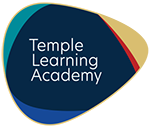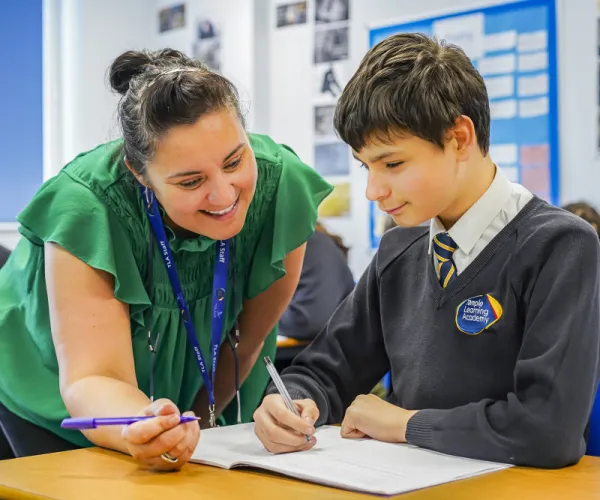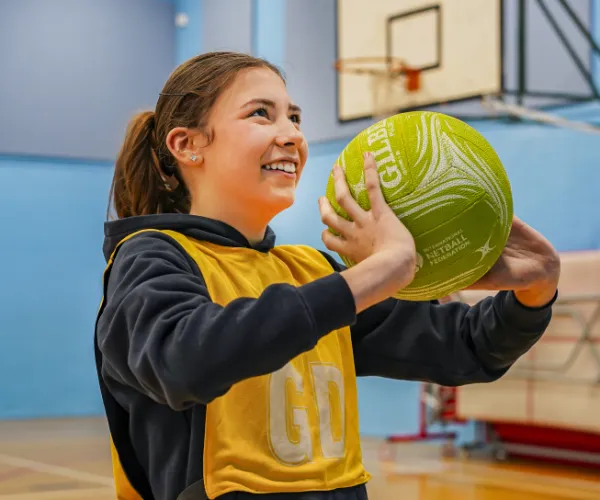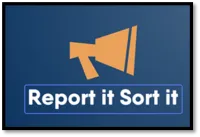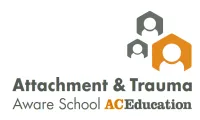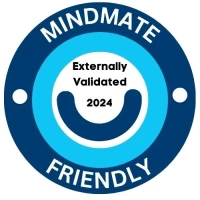- Overview
- Curriculum Vision
- Primary Phase
- Secondary Phase
- Daily Excellence
- Secondary Specific
- Our Curriculum Subjects
- Child Development Curriculum
- English Curriculum
- Maths Curriculum
- Science Curriculum
- MFL - Languages Curriculum
- History Curriculum
- Geography Curriculum
- Religious Education Curriculum
- Art Curriculum
- Music Curriculum
- Drama Curriculum
- Design Technology Curriculum
- ICT Curriculum
- PE and Sport Curriculum
- Citizenship Curriculum
- PSHCE/Personal Development Curriculum
- Assessment
- Personal Development (RSE/PHSE/SMSC)
- Year 9 Options Choices
- GCSE Exam Information
- Reading at TLA
- Home/Remote Learning
- National Assessments and Exams
- Library
Assessment
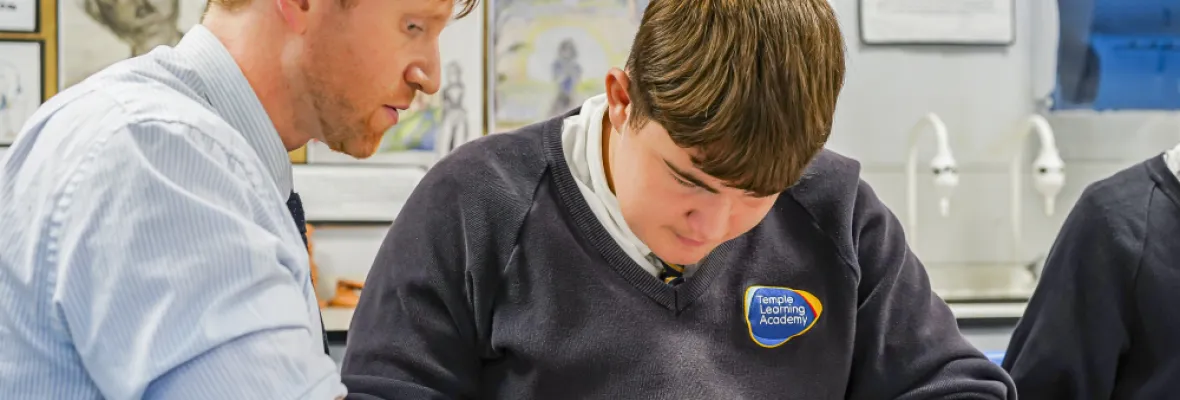 Summary:
Summary:
- Teachers use assessment to help us understand the progress made by students
- Assessment of prior learning aids teachers in planning future learning
- Assessment happens actively within lessons as part of normal learning experiences. We call this “Active Assessment”
- Assessment also happens in the form of more substantial tests, exams or timed independent tasks. These will be completed in “test conditions”. This allows teachers to see how students retain and use knowledge independently. It also helps students prepare for the future when they sit GCSE exams.
- In KS3, students are assessed against descriptors designed by TLA staff.
- In KS4, students are assessed against criteria published by exam boards.
- Staff submit performance data 3 times per year for each child in each subject. They record the Current Working Grade, the Current Predicted Grade for the end of the year and an Attitude to Learning grade.
- Parents will receive data on their child’s performance prior to Parent / Carer Evening and again at the end of the year.
At Temple Learning Academy we have carefully sequenced our curriculum using the progression model. In all subjects, across all phases, this empowers students to know more, remember more and consequently to become increasingly expert in all their subjects. The knowledge and know-how they accumulate across the curriculum is powerful, and enables them to leave our school ready to embrace the opportunities before them with courage, respect and excellence.
In order to ensure that students make the intended progression, we must utilise robust and effective methods of assessment and provide timely feedback and useful guidance on their learning.
We believe that modern, adaptive and responsive teaching is underpinned by effective active assessment. This should be ongoing, both within lessons and over the course of learning sequences. This allows staff to manage and adapt the curriculum delivery to match the intentions and expectations of the curriculum as well as the individual needs of the students.
Formal written assessment and feedback follows a broadly consistent approach in all subjects, but the frequency of that feedback is agreed within each department. Traditional, formal written feedback is used for more significant, extended milestone tasks within the learning journey. Often, but not always, this includes the end of unit summative assessments.
Active assessment, completed live within the lesson, is used more frequently. All teachers are equipped with a range of active assessment strategies to deploy within their classroom using their professional judgement. The pedagogy of assessment features regularly in whole staff CPD and is reviewed carefully within classroom based quality assurance.
Staff ongoingly assess students at all times during their learning experiences. The vast majority of this assessment is completed during lessons - what we call “active assessment”. This will include listening to students’ verbal contributions, their answers to questions posed by the teacher, reading their work in lessons and observing their learning. Highly effective teachers make use of the active assessment in the moment, making adjustments to the delivery plan to clarify learning points and correct misconceptions for students. Students will receive feedback and guidance from their teachers verbally. This may not be recorded formally in books, but where it is this will be completed in a variety of ways depending on most practical methods for that teacher and subject. Staff will sometimes utilise “live marking” (quick, limited feedback and guidance given to students within the lesson) to further enhance the students learning. Staff will also utilise peer and self-assessment within lessons to give students further guidance.
Methodology of grading at KS3
In KS3, students are assessed against criteria developed by staff which track their progression from Primary school towards GCSE in KS4. These criteria are linked with 4 standards: Foundation, Securing, Advancing and Mastery. Students will also be sub-graded as high, middle or low within each of these levels. For example: Advancing+ means a student is working at the top end of the Advancing level. Advancing= would indicate student working securing at the middle range of this level.
This grading method allows us to ensure that students are making good progress throughout Key Stage 3. We track students regularly across all aspects of the knowledge and skills set out in our curriculum planning. We then compare these ongoing assessment grades to each student's Individual trajectory based on their KS2 outcomes. Where some students fall below the expectations set for them, this allows us to identify those students and put support in place at an early stage, ensuring that all students have a strong and successful Key Stage 3 foundation on which to build at Key Stage 4.
FSAM standards and their relationship to GCSE Grades
|
Foundation |
Students working at this standard are likely to achieve Grade 1-2 in this subject at GCSE if they continue on this trajectory. |
|---|---|
|
Securing |
Students working at this standard are likely to achieve Grade 3 in this subject at GCSE if they continue at this trajectory. |
|
Advancing |
Students working at this standard are likely to achieve Grade 4-5 at GCSE if they continue on this trajectory. |
|
Mastery |
Students working at this standard are likely to achieve Grade 6+ at GCSE if they continue on this trajectory |

Methodology of grading at KS4
Students are graded in KS4 against the methodology set out by the course specification they are working towards. Teachers utilise the materials provided by the exam board as well as standardisation and moderation practices to ensure the greatest viable accuracy of their grading.
Target grades and trajectories
In KS3, students are provided with a ‘trajectory’ which is based on projection for their likely GCSE grades based on their KS2 SATs score. We use the FFT system to do this, a nationally recognised standard of generating target grades. Where students do not have a KS2 outcome, a personalised target grade is created based on internal assessments. We reviews these targets and trajectories for students each year, raising the bar for those who are meeting and exceeding their targets to allow their aspiration to shine. It is important to know that we use trajectories at TLA as a minimum expectation for our students, no child is ever "capped" at their target grade.
In KS4, students are provided with a target grade based on an FFT20 projection. This is generated based on their KS2 outcomes and then checked internally to ensure it is appropriately ambitious for our students. Where students do not have a KS2 outcome, a personalised target grade is created based on internal assessments.
Target grades are intended to be ambitious but achievable. All staff are aware that target grades reflect the minimum expectation for a student, and are not used as a glass ceiling for those with the aptitude to exceed their targets. As students’ progress through the curriculum, staff will monitor their performance in relation to their target trajectory. Where students are not yet on track to meet their targets, staff will adapt delivery to support the learning and progress of that individual. Where a student show the aptitude to exceed their target grades, staff will utilise their skills to empower students to achieve their full potential.
In KS3 and KS4, staff record a Current Working Grade and Current Predicted Outcome for all students at 3 Data Capture points through the year. Staff will base these data submissions predominantly on how students perform independently in test conditions but will take into account student performance in the round to reach a fair and appropriate professional judgement.
Within workbooks, all students record their progress on a Progress Journey. This helps them to track their progress and achievement through the year along with their teacher. The progress journey should be maintained up to date, with a reasonable amount of leeway given for teachers to give feedback on assessments and get these updated. Progress Journeys should be easily accessible, but not on display to other students. We suggest the inside cover of workbooks.
- Overview
- Curriculum Vision
- Primary Phase
- Secondary Phase
- Daily Excellence
- Secondary Specific
- Our Curriculum Subjects
- Child Development Curriculum
- English Curriculum
- Maths Curriculum
- Science Curriculum
- MFL - Languages Curriculum
- History Curriculum
- Geography Curriculum
- Religious Education Curriculum
- Art Curriculum
- Music Curriculum
- Drama Curriculum
- Design Technology Curriculum
- ICT Curriculum
- PE and Sport Curriculum
- Citizenship Curriculum
- PSHCE/Personal Development Curriculum
- Assessment
- Personal Development (RSE/PHSE/SMSC)
- Year 9 Options Choices
- GCSE Exam Information
- Reading at TLA
- Home/Remote Learning
- National Assessments and Exams
- Library
